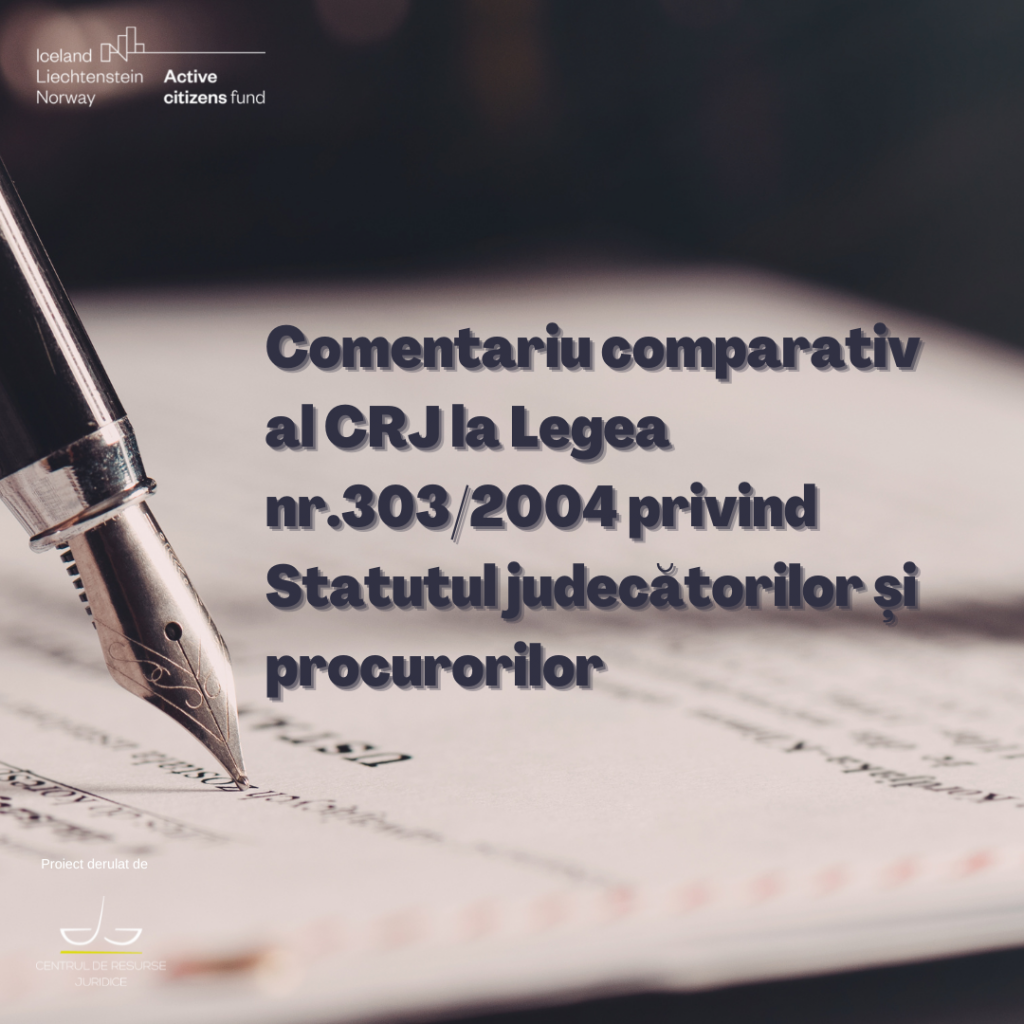The Center for Legal Resources continues its series of commentaries on justice laws and their history. Today we discuss the Law 303/2004 on the status of judges and prosecutors.
Here are some key points in the proposal to amend the Law 303/2004 on the status of judges and prosecutors:
- the prohibition of the secret services to recruit magistrates as operational workers, including undercover ones, informers or collaborators has been removed (former Article 7 paragraph 4)
A similar prohibition does not exist in the special legislation of the intelligence services, therefore the legitimate question arises why such an article was removed! Is it going forward or backwards?
- the obligation to publish any information concerning the status of judges and prosecutors, the inter-institutional cooperation between the courts, public prosecutors’ offices and other authorities, as well as extra-judicial administrative acts issued or concluded between or by the public authorities concerning or affecting the course of judicial proceedings has been removed (article introduced after the cooperation protocols discovered in 2018)
It is not clear from the explanatory memorandum why a provision preserving the right to a fair trial and access to an independent court was dropped. Is it going forward or backwards?
The disciplinary offence of failing to comply with the decisions of the Constitutional Court of Romania has been removed.
Apart from the fact that the oath on admission into the profession is aimed at respecting the Constitution (it has not been changed), is it right for each judge to decide whether or not to respect a decision of the Constitutional Court of Romania? Is the judicial chaos unleashed on this occasion in the interests of the judicial authority?
- the prosecutors applying for high-ranking positions in the hierarchy of the Public Prosecutor’s Office must have a minimum of 15 years of service as a judge or prosecutor (art. 145)
There is no condition of actual seniority in the prosecutor’s office (being a judge is another judicial function altogether), there is no condition of minimum professional rank. Why?
Also, a central role is played by the Minister of Justice and not by the prosecutors’ section of the Superior Council of Magistracy, despite heated debates over the past 20 years.
- The judge applicants to the High Court of Cassation and Justice must have been judges at the courts of appeal for at least 5 years and must have been a judge or prosecutor for at least 18 years (art. 109)
For the highest position in the hierarchy of the judiciary system, don’t you think it would be an honor for the Romanian State to have exclusively career judges who were not prosecutors before? Apparently not.
The full document, with all the comments, but also the legislative evolution since 2004 until now, is available here.






